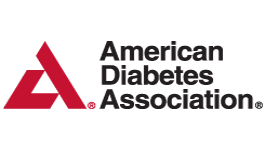Sugar addiction in recovery.
By: Dr. Keith Kantor
It is very common to see those who have overcome substance abuse gain a substantial amount of weight, as a result of turning to sugar instead of the once abused substance. Research has proven that we can develop an addiction to sugar, especially in the form of high fructose corn syrup very quickly. Processed foods like soda, candy, some juices, yogurts, and cookies are usually very high in sugar and should be avoid or at least very limited. Research also suggests that our brains respond with the same dopamine response after consuming sugar as it does with the abused substance.
Addiction and recovery centers should emphasize sugar regulation. Alcoholics are especially prone to sugar addiction and to the energy highs and lows that accompanies it, but sugar addiction affects other addicts too. To maintain sobriety it is best to follow a diet that will promote steady blood sugar levels while suppressing the opiate receptors. Go to www.namedprogram.com for a free week of these menus and recipes.
When you get that blood sugar crash, your body craves sugar. In an addict’s brain, when you crave sugar it immediately translates in your brain to alcohol or drugs and you get a really strong craving for alcohol or drugs. It is best not to put the body in this vulnerable state that could result in a craving that is completely out of control. An urge for the “next fix” is actually a sugar craving in disguise, due to the opiate receptors being stimulated.
It is not uncommon for those recovering from addiction to turn to food as a replacement. Binge eating on junk foods is initially impulsive and may feel somewhat comforting. It is not uncommon for some patients to gain 10 pounds the first couple of weeks of treatment, due to emotional eating, sugar addiction, and impulsive behaviors. By channeling energy over to healthy lifestyle habits like healthy cooking, regular exercise, sports and meditation, the addictive patterns are disrupted. Along with nutrition education, ongoing therapy and support patients have a better chance of remaining sober.
Strategies for avoiding sugar addiction:
- Do not consume processed foods. Eat a minimum of 6 servings of vegetables and some fruits daily.
- Drink at least half of your body weight in ounces of water daily. Sometimes being dehydrated can result in sugar and salt cravings.
- Practice daily exercise, both moderate and intense styles of exercise. Regular exercise promotes optimal hormone levels, reducing potential for sugar cravings.
- Make sure you are consuming healthy fats and quality proteins at most or all of your meals and snacks. Consuming optimal levels of fats and proteins will promote steady insulin levels, reducing carbohydrate cravings.
- Aim to sleep at least 7 hours per night. Being sleep deprived can result in insulin fluctuations, promoting sugar cravings.







